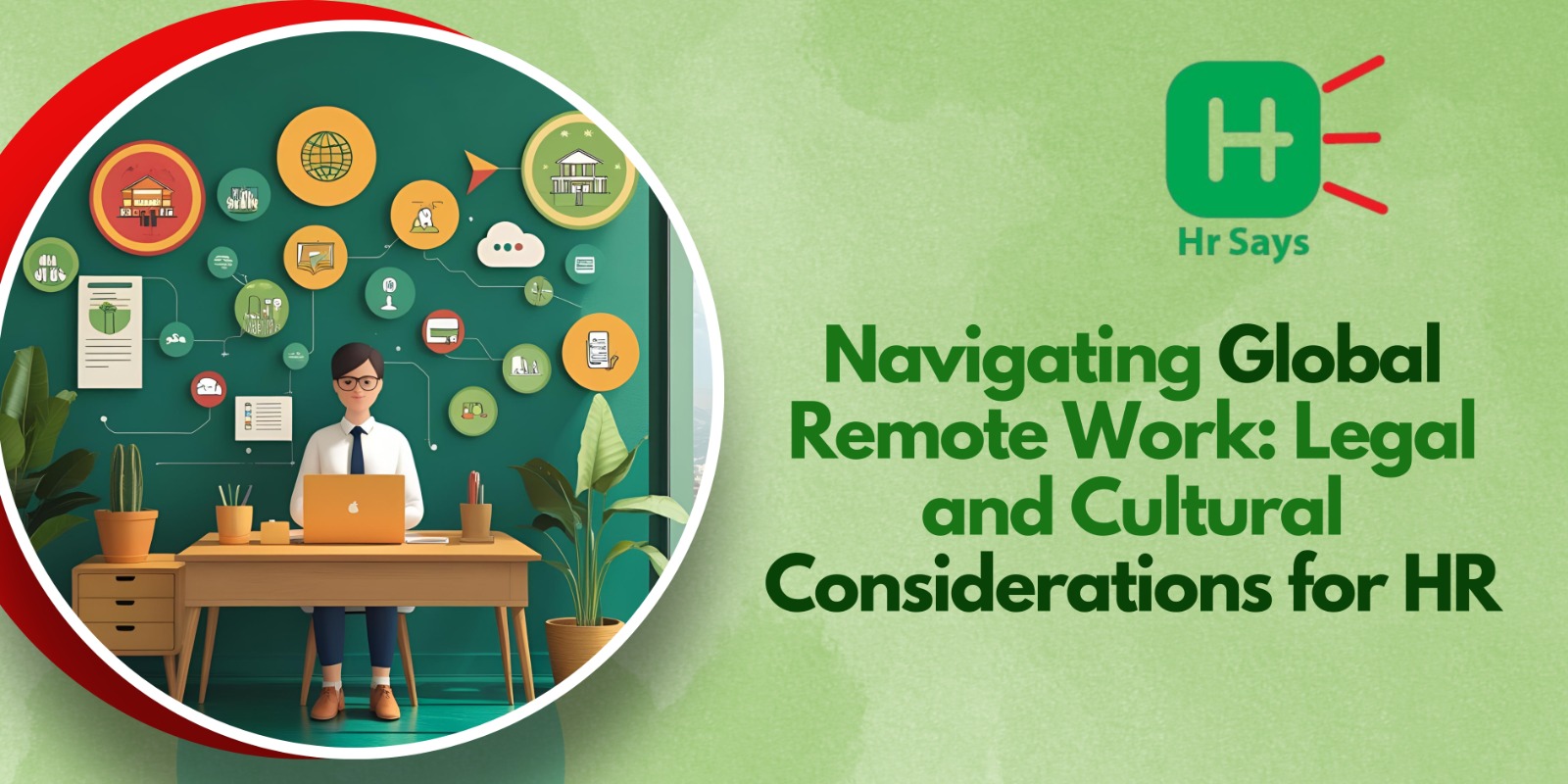Everything has changed after the pandemic, right? Especially our global steps towards remote work is unreal, well, real—and permanent. But distance brings complexity, and labour laws vary, right? Communication styles clash, also, sometimes, payroll gets tricky. Here, HR must come as a saviour and act as a navigator. Just like a sailor, without direction, remote operations will sink under legal, financial, and cultural weight.
Employment Law: One Workforce, Many Rules
Remote work isn’t just about where work gets done. It’s about how work gets done—legally, fairly, and with understanding.
● Labor laws differ and vary from country to country. In past cases, there are so many examples of misclassification of workers that have led to lawsuits.
● Countries like Germany, UAE, and California (USA) impose strict worker protections. Because everyone has the right to.
● Rules around termination, benefits, paid leave, and working hours must be followed locally—not universally. As it can create confusion and decrease productivity.
● It should be a must-do for an HR to either register entities or use Employer of Record (EOR) platforms like Remote or Deel.
Remember, a remote team is global. Compliance must be local.
Taxation and Payroll: Hidden Traps Beneath the Surface
Wondering if there’re some hidden agendas? Read this:
● Dual taxation issues may arise if a worker’s tax residency differs from the company’s.
● Social security contributions vary and must be handled per local guidelines (e.g., GCC countries require expat insurance).
● Payroll systems must accommodate currencies, holidays, and deductions across regions.
● Missteps invite penalties, audits, or worse—employee dissatisfaction.
Pay errors aren’t forgiven. They’re remembered.
Data Privacy & Cybersecurity: The Digital Workplace Must Be Protected
AI is making everyone’s life easier, that’s for sure but have you thought about your data privacy
and cybersecurity? If not, then these can be helpful:
● Cross-border data transfer is restricted under GDPR (EU) and CCPA (US).
● Remote teams working on sensitive information require end-to-end encryption, VPN
access, and secure device policies.
● Cultural norms around privacy (e.g., camera usage during meetings) also vary.
● HR must draft policies that protect both data and dignity.
We all want a world where Remote doesn’t mean careless.
Cultural Intelligence: Remote Doesn’t Mean Culture-Free
Globalisation is a fantastic way to make the sky the limit. But what about cultural awareness?
Culture is not something you can feed to someone, it’s all about adaptation.
● Work ethics, time zones, and communication styles obviously would differ.
● In the GCC, hierarchy may matter more than in Berlin or New York as the global position
and culture differ so much.
● Public holidays, religious observances, and working weeks (e.g., Sunday–Thursday in
UAE) must be respected.
● One-size-fits-all policies create disengagement. Inclusion must be intentional.
Remote Is Here, But Readiness Isn’t
Going global has opened doors—but also minefields. Legal exposure is real. Cultural friction is
silent but it can be damaging. HR can no longer afford to be reactive. The future is global,
hybrid, and nuanced.
Preparation isn't optional. It’s protection.

 Remote work has crossed borders. Talent now works from anywhere, but compliance hasn’t caught up. Legal risks are rising. Cultural missteps are common. HR teams must prepare. It’s no longer about enabling remote work—it’s about managing it responsibly.
Remote work has crossed borders. Talent now works from anywhere, but compliance hasn’t caught up. Legal risks are rising. Cultural missteps are common. HR teams must prepare. It’s no longer about enabling remote work—it’s about managing it responsibly.








.jpeg)
.jpeg)

.jpeg)





.jpeg)



.jpeg)

.jpeg)



